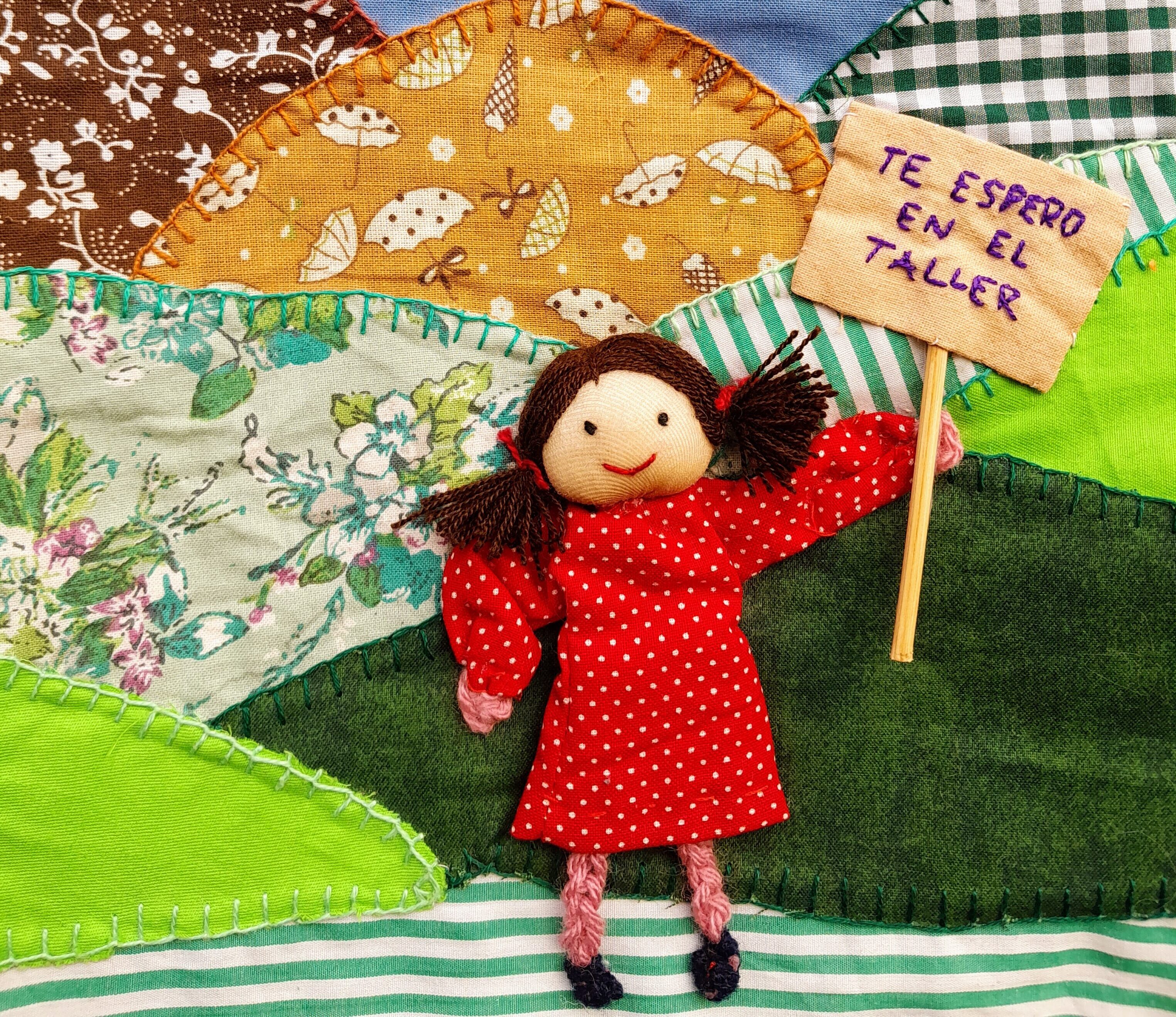
April 20th, 2024
10 am – 12:30 pm ET

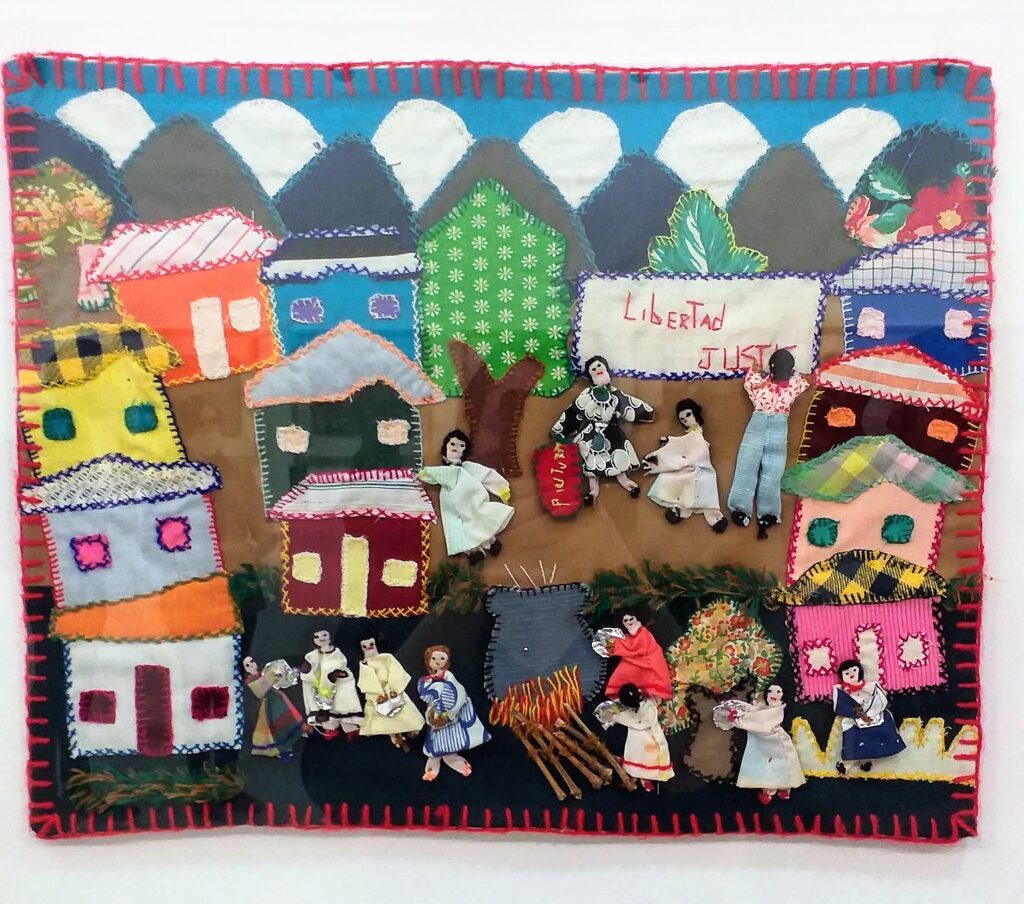
The Museum of Memory, Olla Común, 1973-1990, Tela y bordado 38 x 48 x 1,5 cm, Colección Rosemary Baxter, Museo de la Memoria y los Derechos Humanos, 9
January 2023.
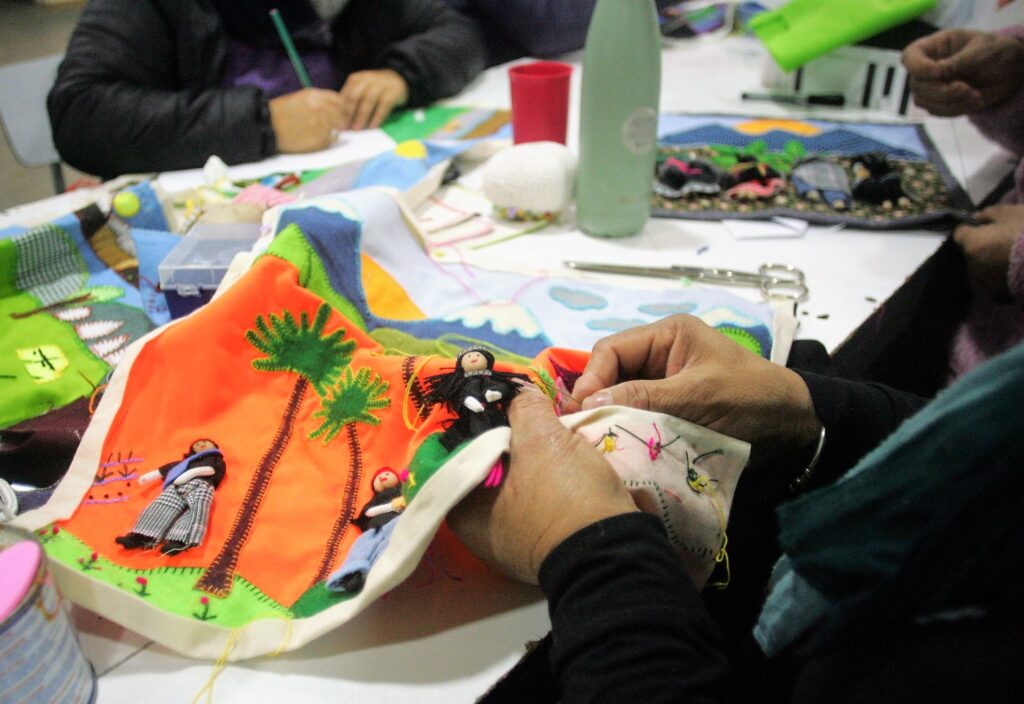
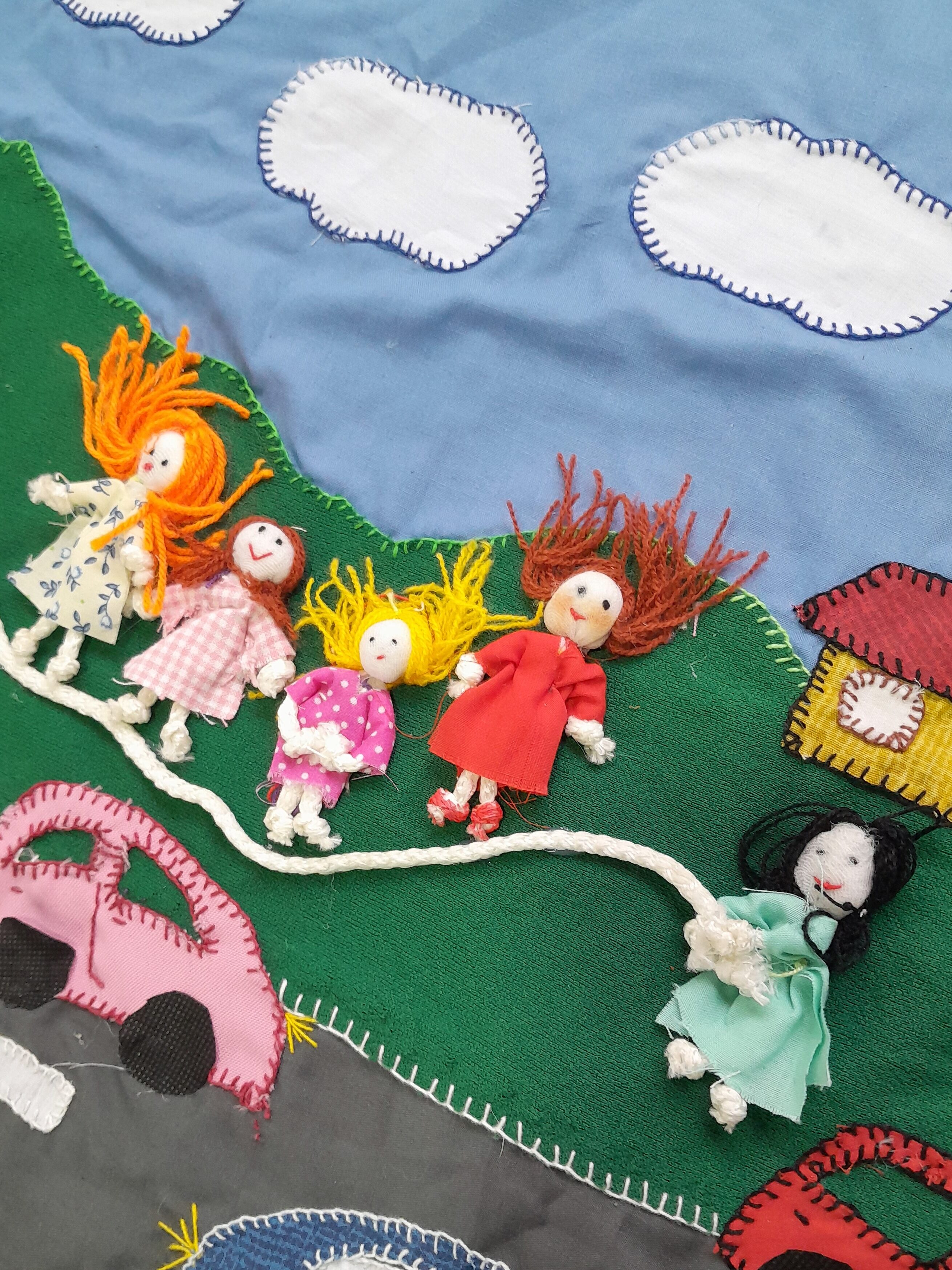
ACTIVITY
“Arpillera” in English loosely translates to burlap- descriptive of the common substrate fabric on which colorful, narrative compositions native to Chile, are appliquéd.
However bright and lyrical these compositions may be, the legacy of Chilean Arpilleras is one of politics, deeply personal story, and lived trauma.
The practice of Arpilleras was established in Chile in the 70s, during the dictatorship of Augusto Pinochet. In those trying times, human rights violations were a daily occurrence. Many families knew torture, illegal detentions, and murders first hand. To this day, there are families searching for the remains of their parents, spouses, and children.
As we see time and time again, deep suffering can be the seed of profound resilience. An organization called the Vicaría de la Solidaridad, began to provide moral and legal support, primarily to female relatives of victims of abuse, detainees, and missing people. These women spent much of their time in offices, waiting for information from their relatives. It was there, under the guidance of a leader named Valentina Bonne, where the first Arpillera workshop began. With very few materials, they began to embroider and transfer their pain, anguish, and grief to the fabric. Their needle and thread told their stories.
In the Arpilleras, fabric figurines are representative of humans and play a relevant role in the construction and the narration of the stories that these textiles tell.
Join Scarlett Yàvar Garcia, as she highlights the importance of Arpilleras throughout Chilean history, discusses the significance of the fabric figurines and their makers, and engages our hands from all over the world in this dollmaking practice.
“It is in our hands, in our needles and threads, that the history of these women is not lost.” – Scarlett Yàvar Garcia”
Dates
April 20th, 2024
10 am – 12:30 pm ET
Location
This workshop will take place on Zoom. It will be recorded and the recording will be available to students for one month after the live session.
Materials
Please collect these materials before class. These are highly personalizable and we recommend you using your studio scraps.
- Approx 8×8 inch square of stretchy fabric (pantyhose or a cast aside t-shirt works great) in whatever color you choose to imitate skin
- Cotton stuffing (synthetic or organic) Enough to fill the small doll’s head
- Embroidery floss for doll’s eyes and mouth (your choice of color)
- Embroidery threads or yarn for doll’s hair
- Scraps of fabric for doll’s clothes
- Sewing needle and sewing thread
- Craft or fabric scissors
- Optional: Brooch clip, base pin, safety
pin
Cost
$45
Scholarships
This workshop is open, free of charge, to all people of Chilean descent. There are also three scholarship spots. If interested in a scholarship, please email an application letter to info@tatter.org. Please tell us about your creative practice, why you are drawn to this class, and what you hope to get out of it.
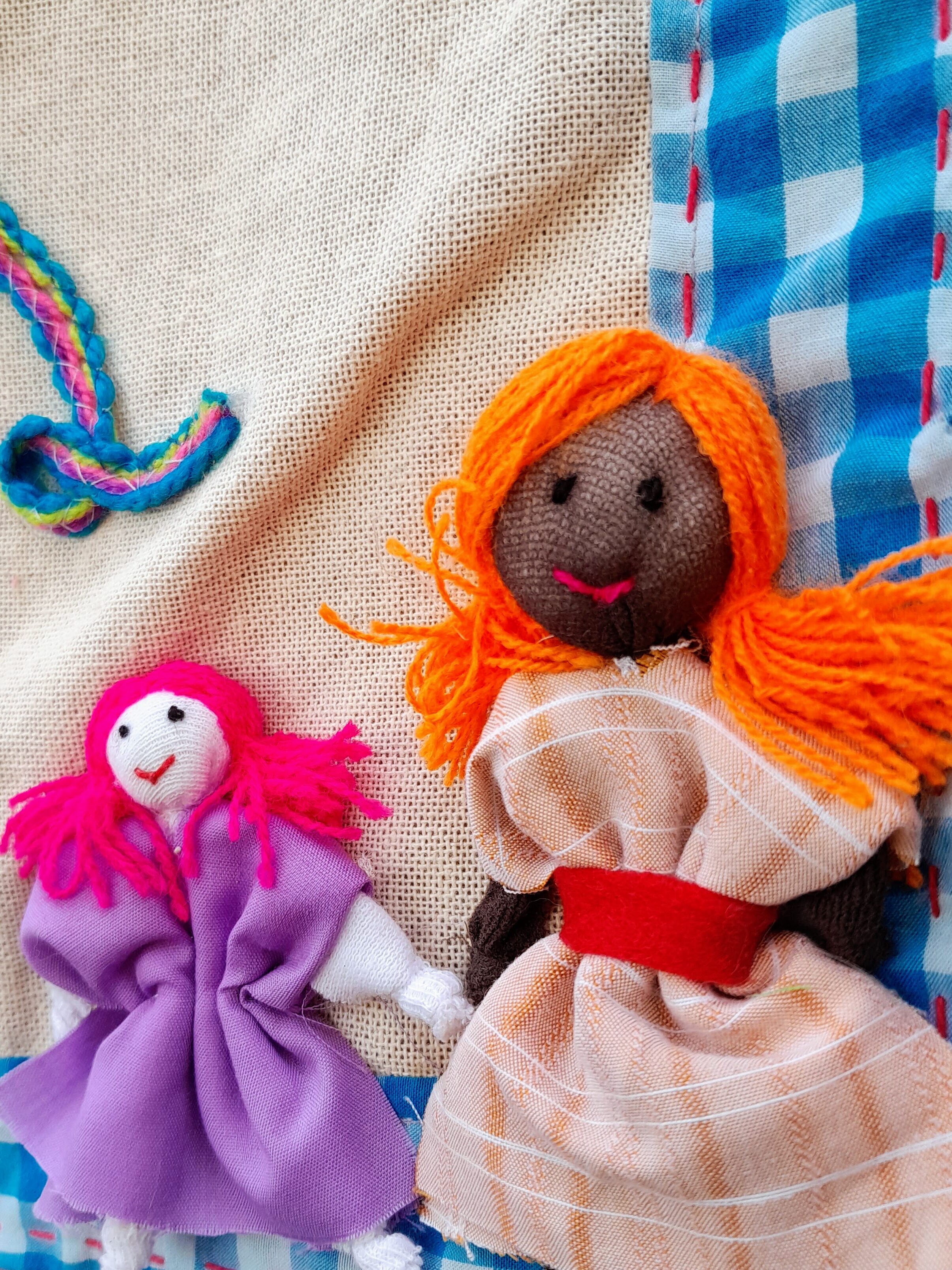
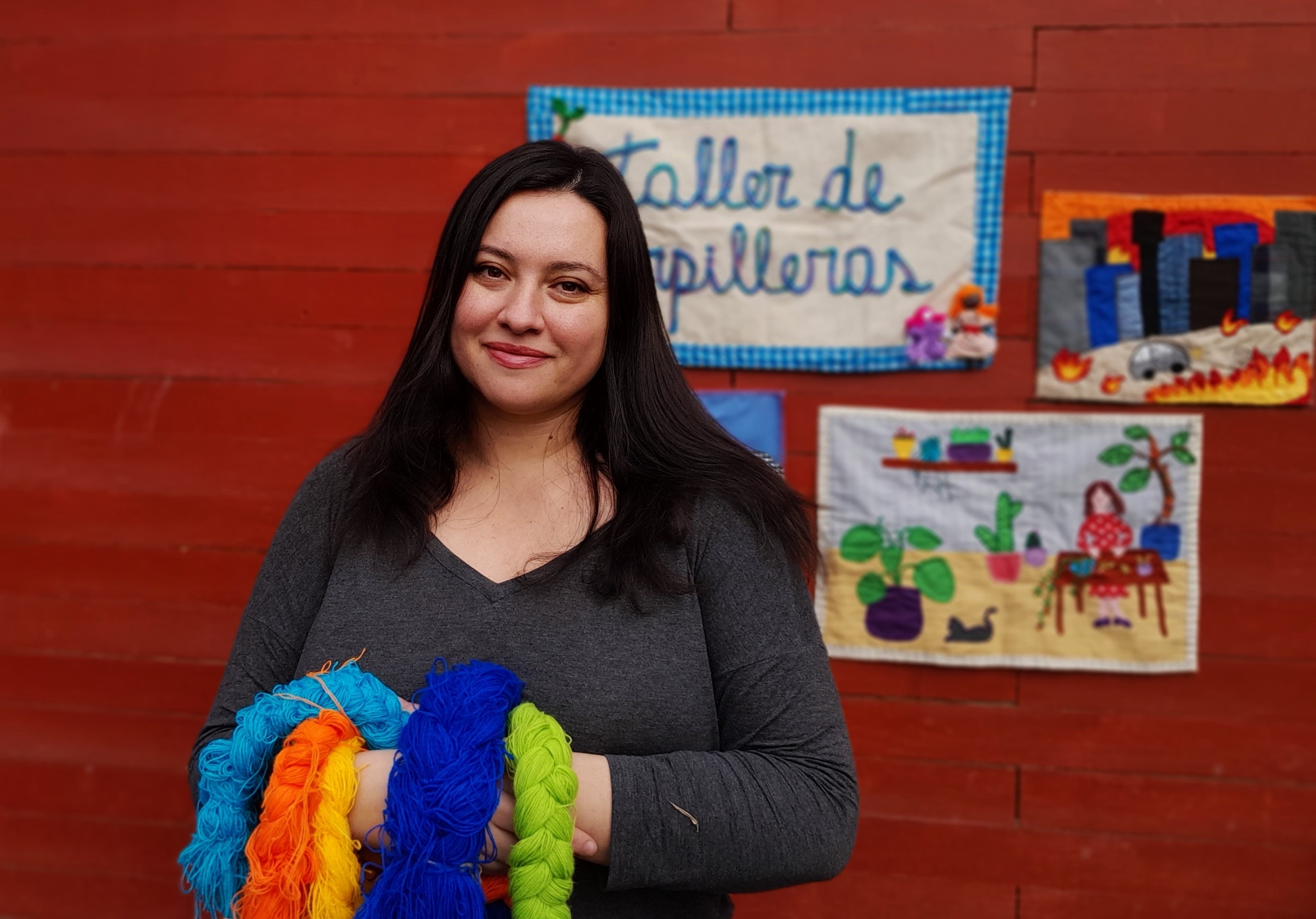
OUR TEACHER
Scarlett Yàvar Garcia
Scarlett Yàvar Garcia is a self-taught textile artist, dedicated to developing, researching and disseminating textile techniques, with a focus on quilting and Chilean arpilleras. Throughout her creative journey, she has approached her work with a mindfulness of sustainability and reuse. Maintaining a practice of “slow sewing”, she has found that she falls in love with the process even more than the results. Over the last few years, she has dedicated herself to teaching textile techniques to different communities in Santiago de Chile, where she lives. It is important to Scarlett to share stitching traditions and practice with residents who are outside of modern social networks and the online education community. When she is not teaching, she dedicates her time to the development of her work and experimentation within it.
